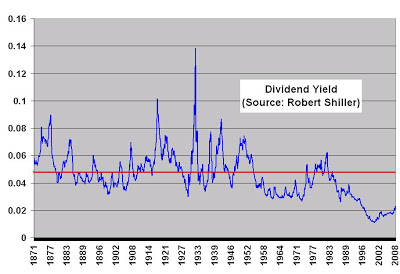Accountant Job Description & Average Salary
Content

Bank accountants ensure compliance with government regulations and may provide information to external auditors when they perform reviews. Bank accountants may hold titles such as accountant I, accountant II, staff accountant, or senior accountant.
- He has worked as an accountant for seven years and has been in the fintech industry for over a year.
- Complying with all company, local, state, and federal accounting and financial regulations.
- Take a few short sentences to really set your company apart from competing job postings and sell yourself to job seekers.
- The Pay tab describes typical earnings and how workers in the occupation are compensated—annual salaries, hourly wages, commissions, tips, or bonuses.
- They perform account analysis to make sure that entries and balances are correct.
- Monitor and review accounting and related system reports for accuracy and completeness.
Consider tailoring your career to meet the needs of one of these in-demand fields. A career in financial accounting requires a bachelor’s or master’s degree in a relevant field such as accounting, finance, business, or economics. Entry-level job opportunities usually require 0-5 years of related experience. Depending on the size of the business, financial accountants may work independently or on teams. Entry-level financial accountants typically report to senior accountants. With experience, financial accountants working in the business sector may progress to senior or management positions like financial controller.
Chief Financial Officer
9) Survey operations to ascertain accounting needs and to recommend, develop, and maintain solutions to business and financial problems. 3) Analyze business operations, trends, costs, revenues, financial commitments, and obligations, to project future revenues and expenses or to provide advice. 2) Compute taxes owed and prepare tax returns, ensuring compliance with payment, reporting and other tax requirements. The best job listing site is a function of the position you’re trying to fill, your recruitment budget and other factors. LinkedIn is a great choice for those who plan to promote their listings, as LinkedIn serves up three times more qualified applicants than other platforms. Indeed and Monster are good choices for those who are trying to place nonspecialized jobs and/or don’t have a recruitment budget.
- This information helps executives with decisions by giving them a clear picture of where the bank currently stands.
- They usually give financial advice to the clients that range from big or multinational organizations to small businesses.
- Our review will help you with tips on the design, structure and content of your resume.
- If it gives you a nails-on-the-chalkboard feeling, then maybe consider something else.
Entry-level candidates typically start with the role of accountant I and gradually progress to accountant II and Accounting Job Description III positions. Financial accountants report to accounting managers and to the bank’s financial controller.
Making better hires starts with building better job descriptions
A good skills and qualifications section makes it very clear to job seekers whether or not they are qualified for the role. It’s important to remember to distinguish between required and preferred skills and qualifications. You don’t want to drive qualified applicants away because they believed they were not qualified, nor do you want to attract unqualified applicants who think they are qualified.

All of these credentials require experience in the related area, continuing education, and passing an exam. Longer periods of work are typical at certain times of the year, such as for quarterly audits or during tax season. Internal auditors have duties that are similar to external auditors, but these workers are employed by the organization they are auditing. They identify ways to improve the processes for finding and eliminating waste, fraud, and other financial risks to the organization.
Cost accounting manager job description
These certifications include Certified Management Accountant , Certified Internal Auditor , and Certified Bookkeeper . Each designation has various requirements, including past education and career experience. Additionally, these certifications have continuing education requirements that must be met every few years. Analyze financial information and prepare financial reports to determine or maintain record of assets, liabilities, profit and loss, tax liability, or other financial activities within an organization. The average salary for a full-time accountant in the United States is $77,250 per year or $37.14 per hour, according to the Bureau of Labor Statistics.
Is it hard being an accountant?
While accounting does require a complex set of skills and abilities, as well as excellent attention to detail, it really isn't any more difficult than many of the other popular fields of study that lead to excellent lifelong career opportunities.
The median salary for chief executives is $185,950 with the top 25% making over $208,000 a year, according to the BLS. A chief financial officer is the executive responsible for managing the finances of an organization. They are in charge of financial planning, maintaining financial records, and analyzing these records to inform executive decisions. They manage the accounting department, and typically report to the chief executive officer and/or company shareholders. The Bureau of Labor Statistics reports that auditors earn a median annual salary of $73,560. This table shows a list of occupations with job duties that are similar to those of accountants and auditors. Public accountants have a broad range of accounting, auditing, tax, and consulting tasks.
What initially interested you about the field of financial accounting?
Financial accountants working in education help produce key reporting documents on assets, cash flow, revenues, expenses, and liabilities. This guide explores the profession’s skills, areas of expertise, and job outlook. To learn more about this, and other bachelor’s degree programs that can propel your accounting career, explore our https://online-accounting.net/ program pages. Additionally, a certified public accountant is an accountant who has passed the CPA exam and has met state licensing requirements. A candidate applying for an accountant role should hold a relevant degree in the field. An applicant holding a bachelor’s degree in accounting or finance would be preferable for this role.
Companies also seek strong technology expertise, including proficiency with Microsoft Excel and experience with enterprise resource planning systems. When composing your job description, it’s important to ensure that it accurately reflects what you’ll expect from the successful candidate on a daily basis. To attract the right applicants, you’ll need to write clear, organized text that effectively communicates the role this position will play inside your organization. Senior Accountant responsibilities include reconciling account balances and bank statements, maintaining general ledger and preparing month-end close procedures. A successful Senior Accountant combines excellent analytical skills with a thorough knowledge of accounting principles to analyze financial reports and forecasts. The ideal candidate has also experience collaborating and/or managing a team of Accountants and Junior Accountants. Aspiring operational accountants typically must possess a bachelor’s degree in accounting, business administration, or a related field for entry-level work.
When you do this, you’ll make it clear to jobseekers what you’re looking for and cut back on your chances of getting applicants who aren’t qualified. Public accountants work with financial documents that clients are required by law to disclose, such as tax forms and financial statements that corporations must provide to current and potential investors. Some public accountants concentrate on tax matters, advising corporations about the tax advantages of certain business decisions or preparing individual income tax returns. Management accountants are also called cost, corporate, industrial, managerial, or private accountants. They combine accounting and financial information to guide business decision making. They also understand financial and nonfinancial data and how to integrate information. The information that management accountants prepare is intended for internal use by business managers, not for the public.

No Comments